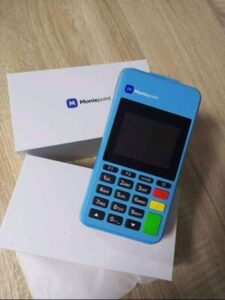A game-changing invention, blockchain technology is redefining several sectors and altering how we conduct transactions, store data, and build trust in the digital era. The idea of decentralized and distributed ledgers, which allow for safe, open, and tamper-proof transactions, is at the core of blockchain technology. In this essay, we’ll examine the significant effects of blockchain technology on decentralization, trust, and security with an emphasis on the keyword “Buy Bitcoin” as a shining illustration of how blockchain is transforming the field of digital money.
Developing Transparency and Trust
- Decentralization: By enabling peer-to-peer transactions, blockchain does away with the necessity for middlemen like banks or governments. By reducing reliance on centralized authority and promoting direct communication between individuals, this decentralized character promotes trust.
- Immutable Ledger: The distributed ledger technology used by blockchain provides the immutability and transparency of transactions. An auditable and transparent history of all transactions is provided by the blockchain since once a transaction is recorded there, it cannot be changed or tampered with.
- Smart Contracts: These self-executing contracts with established rules may be created and executed on blockchain systems like Ethereum. These agreements do away with the need for middlemen, which lowers costs and ensures transparent and effective transactions.
Increasing Data Integrity and Security
- Cryptographic Security: To safeguard transactions and data, blockchain technology uses cryptographic algorithms. Each transaction is encrypted and connected to the one before it, forming a chain of blocks that is nearly hard to change without the agreement of all users on the network.
- Data privacy is improved by blockchain technology because it gives individuals more control over their personal data. Users can utilise cryptographic proofs to secure their privacy while still proving their identity or ownership instead of directly revealing sensitive data.
- Protection Against Fraud: Due to its transparency and immutability, blockchain is incredibly resistant to fraud. Because the technology is dispersed and decentralised, there are no single points of failure, which makes it difficult for bad actors to influence or spoof transactions.
Buy Bitcoin to Revolutionize Digital Currency
Photo by Kanchanara on Unsplash
- The groundbreaking cryptocurrency Bitcoin is a prime example of how blockchain technology can completely change an industry. Without the aid of middlemen, it lets users purchase, sell, and transfer value internationally. Here are some ways that Bitcoin is changing the world of digital currencies:
- Independent Currency: A decentralized network of computers called nodes, which jointly validate and log transactions, is the foundation of the Bitcoin protocol. Since the currency is no longer under the power of central banks or governments, people now have complete ownership and control over their money.
- Privacy and Security: Cryptographic methods protect Bitcoin transactions, making it very secure against fraud and hackers. Although individuals can keep some degree of pseudonymity, transactions on the blockchain are visible, strengthening privacy and safeguarding sensitive data.
- Global Accessibility: The ability to purchase, trade, or keep Bitcoin is available to anybody with an internet connection, regardless of location. For the underbanked and unbanked people who do not have access to traditional financial services, this accessibility creates new opportunities for financial inclusion.
- Financial Sovereignty: Bitcoin grants users financial independence, allowing them to manage their wealth independently of middlemen. Peer-to-peer transactions may be conducted easily thanks to it, avoiding the restrictions and costs associated with conventional banking systems.
Applications of Blockchain Beyond Currency
- Beyond digital money, blockchain technology also has uses in the healthcare, voting, supply chain management, and intellectual property rights sectors. These prominent use examples are provided:
- Transparency in the supply chain is made possible by blockchain, which allows for end-to-end product tracing. This promotes confidence in the supply chain. Customers may trace the path of products, confirm their authenticity, and guarantee ethical sourcing via a blockchain-based system.
- Healthcare Data Management: By safely storing and exchanging patient data, blockchain technology can revolutionize the healthcare industry. Blockchain guarantees data privacy, interoperability, and integrity, allowing for easy access to medical records and safe information sharing between healthcare professionals.
- Voting System Transparency: Blockchain technology has the potential to increase voting system transparency and security. Blockchain technology can prevent fraud and guarantee the legitimacy of elections by storing vote data on a decentralized, unchangeable ledger.
- Blockchain technology may be used to create ownership and authenticity evidence for digital assets, including intellectual property. In order to better secure their creations and enforce ownership rights, creators can register copyrights, patents, and trademarks on a blockchain.
Overcoming Obstacles and Embracing the Future Scalability
Photo by Shubham Dhage on Unsplash
- As the volume of transactions rises, blockchain technology confronts scalability issues. To increase the scalability of blockchain without sacrificing security and decentralization, continuing research and development efforts are concentrated on scaling solutions including layer-2 protocols, sharding, and off-chain transactions.
- Regulatory Frameworks: Governments and regulatory organisations are striving to construct frameworks to control the use of blockchain technology as it continues to develop. For blockchain technology to be widely used, it is crucial to strike a balance between encouraging innovation and guaranteeing consumer safety.
- Interoperability: At the moment, blockchain platforms run independently, which limits their potential. However, cross-chain protocols and standards are being created as interoperability solutions to allow for smooth communication and data exchange between various blockchain networks.
- Innovation that never stops: Since blockchain technology is still in its infancy, growth and acceptance are likely to be fueled by innovation that never stops. Blockchain technology will continue to advance, boosting its capabilities and possible uses through innovations including privacy-enhancing methods, scalability fixes, and energy-efficient consensus algorithms.











